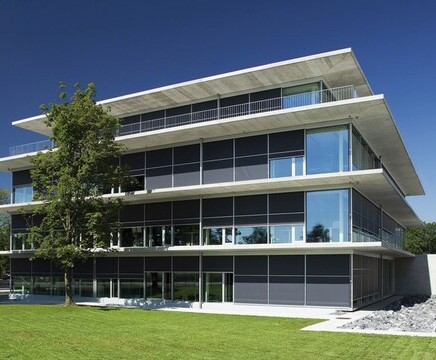Ronal AG


Processes must run smoothly
When companies expand, quality and process management should also grow accordingly. Consistent process management that builds on company-wide processes and site-specific process variants is helpful. A light alloy wheel manufacturer recognized the benefits of an integrated management system and now works with a system from IMS Integrated Management Systems AG.
For a long time, business processes at Ronal AG were able to be designed in parallel with corporate development. The associated quality management requirements were a means to an end in order to meet the requirements of automobile manufacturers. Volatile markets, shorter product life cycles at automobile manufacturers and increasing cost pressure led to a situation in which it was no longer sufficient to react to changes. Instead, it became necessary to proactively change processes and structures in the company based on observation of markets, technologies and trends.
Ronal AG, with headquarters in Härkingen, Switzerland, has been manufacturing alloy wheels since 1969, is present in ten countries worldwide and employs over 5,000 people. All well-known automobile manufacturers and the accessories trade are among its customers. Not only the quality of the products, but also the quality of the services is of enormous importance. As the automobile sector changed, so did the pressure and requirements for efficient implementation of process changes, standardization and synchronization of processes and documents, and the associated quality management. The communication requirements and resource expenditure for implementation were enormous. The development and implementation of an integrated management system (IMS) to support the tasks of process and quality management were considered to be a suitable means of meeting these challenges. The company management's objectives were defined as follows:
Individual and standardized processes in one system
The greatest possible standardization of processes and documents, taking country- and location-specific characteristics into account, is crucial for high efficiency and quality. However, both standard processes and country-specific processes have one thing in common: only if there is a transparent information basis about the status of processes is it possible to define targeted measures for further development. An appropriate approach to creating a transparent basis for decision-making is to measure process performance and process quality using key figures that are uniformly defined across the company. When defining the project, it quickly became clear that all requirements could not be processed and implemented in parallel across the entire company (Table 1). Ronal's management therefore decided to develop a standard process as part of a pilot project, roll it out at a pilot location and adapt it individually there. To ensure efficient implementation of the rollout at the various locations, the project team visited the country companies, coordinated standardization and individualization (in six languages) and assessed compliance with standards as part of internal audits. The solution was "decentralized process management". Standard processes with the associated key figures must be specified centrally by the company management. The highest possible quality and acceptance is achieved when the process variants can be defined independently by the locations. In this way, employees' understanding of processes, responsibilities and relationships is strengthened and their cooperation and motivation are ensured. In order to be able to implement the process-oriented organization efficiently, roles were defined (process owners, process teams, etc.) and provided with the necessary responsibilities and decision-making powers. The prerequisites and success factors for implementation were:
Implementation with an integrated management system
Ronal's management recognized and defined the need for comprehensive software support to set up the integrated management system right from the start of the project. The software support was expected to provide transparency and the opportunity for all employees to be involved. Providing information to all employees should also ensure motivation to use the system. In an extensive selection process, the decision was made to use the IMS Premium software from IMS Integrated Management Systems AG, Root in Switzerland. This solution makes it possible to map company processes at any level of abstraction, define them as a standard and roll them out to locations worldwide. It meets all the requirements for successful certification according to various norms and standards such as ISO 9001, ISO/TS 16949 and ISO 14001 and allows an ideal distribution of the workload in quality and process management between specialist experts who are decentrally anchored in the areas and locations and administrators who centrally monitor the formal requirements and also administer the IT system. The modular structure of the software allows for gradual expansion in line with the company strategy. The greatest challenge in implementing an IMS is a successful project start. Even before process standardization began at Ronal, a wide variety of company-wide, uniform documents were made available in the new IMS. This was to enable users to quickly recognize the advantages of the new system. In fact, this increased acceptance of the project and the new software. The company management appointed an overall project manager who successfully carried out the pilot project with the support of the consulting company QFU GmbH, Kaiserslautern. The task of this team was, among other things, to demonstrate the goals and benefits of the project at all locations, to train process understanding and to use the new software.
Proactive and reactive action are equally important
The integrated management system at Ronal has thus been successfully launched, but is by no means "finished". The further development of processes, associated documents and structures is continuously reflected in the system. Process management is proactively designed and quality management is reactively documented. The decisive factor for the IMS to remain up-to-date is to continue to work on standardizing and synchronizing processes in the future and to clearly define the level of detail.
At the same time, the company management is required to continue to refine the process-oriented organization and to anchor the associated philosophy It is important for the light alloy wheel manufacturer that both tasks are supported by software and thus implemented simultaneously at all locations with the highest level of efficiency and transparency.